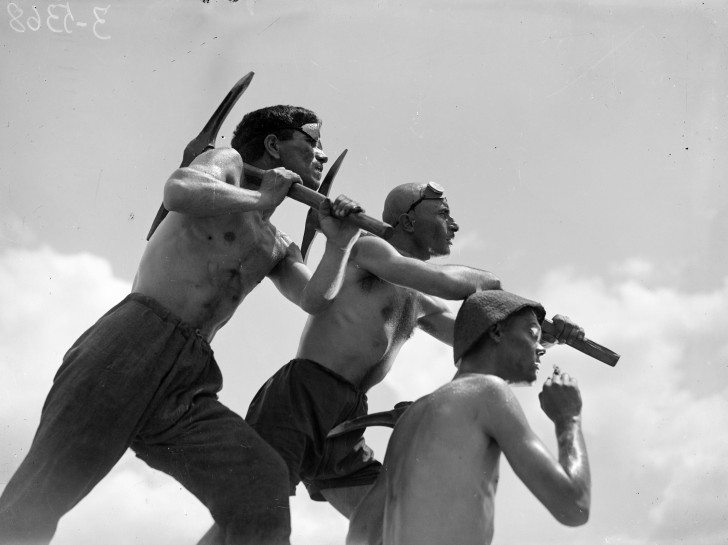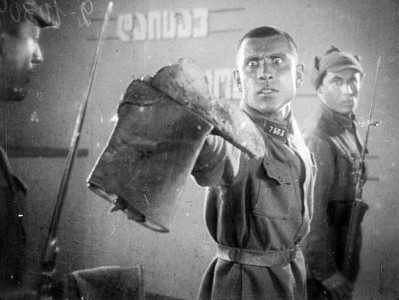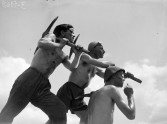
Salt for Svanetia
Nail in the Boot
Screening on Film
Svanetia is a small region of Georgia, so high up in the mountains some of its villages may stay inaccessible for months in the winter. There, the beauty of nature contrasts with the toughness of everyday life. Not only do people’s livelihoods depend on their cattle; the climate is so unpredictable that a sudden snow in late July can destroy the harvest (consisting solely of barley, the only grain that grows at this altitude). Especially hard for both people and animals is the lack of salt; with no roads connecting Svanetia to the rest of the country, to fetch salt, Svans climb the mountains on foot, under the risk of perishing in an avalanche. Salt for Svanetia is a call for help in building roads to ease life on this ancient land.
This film is like no other. Literally, it is impossible to put it in any legible category. Generically, it resides somewhere between a documentary, propaganda, drama, montage manual and Discovery Channel. Unlike many of his fellow Georgian directors, Mikheil Kalatozishvili (who went by Mikhail Kalatozov, the Russified version of his name, for most of his career) came to film directly, not from other arts: his first job was as a studio projectionist and driver, and, after a series of apprenticeships, he graduated to cinematography and directing. In this film, he proudly credited himself “director-cinematographer,” and it is hard to come up with a more telling description. The way Kalatozov’s camera works is unique: with the angles he chooses, it seems to lose the sense of gravity. Fittingly for a movie about life in the mountains, the shot geometry here leans toward the diagonal; if it makes the viewer a little dizzy, this is exactly what one feels at such a height.
Around half of this film’s action takes place at a court trial, but this is anything but your typical courtroom drama. A young man has had to deliver an important message from his fellow soldiers defending their armored train against the enemy’s artillery. With his foot injured by a proverbial yet very real nail in his boot, he fails, and is charged with treason. The courtroom crowd seriously leans toward capital punishment until his last speech, in which he successfully blames them back. You will see why.
This film is radical on all fronts: avant-garde experiments on steroids meet early Stalinist austerity distilled to the state of absolute ether. To be fair, the film had been commissioned by the army film studio for propaganda purposes, and, yes, avant-garde was born with a soft spot for the military force (think of Italian Futurists), but here the camera lingers on the metallic shine of a shell as if it were Greta Garbo’s face. His inability—due to the foot discomfort—to jump over the barbed wire in the middle of nowhere translates into a scene whose dramatic heat reminds one of King Lear praying in the wilderness; the protagonist’s accidental stepping into the puddle of fuel oil—a natural antiseptic, they say, that apparently heals his wound— and lingering there somewhat ecstatically for a minute or two turns into a miniature melodrama of succumbing to a seduction. When, after all this visual and dramatic frenzy, you learn that there is in fact no actual war going on, you feel like–well, see for yourself. Nail in the Boot was immediately banned for “formalism” and unfavorable presentation of the Red Army (I don’t know what they meant: the soldiers all look monumentally heroic here), but I suspect that was not all: on the eve of the epoch of famous show trials, the idea that a defendant can actually raise his voice, defend himself and have his accusers lower their eyes in remorse, couldn’t have sat well with the Soviet authorities.














